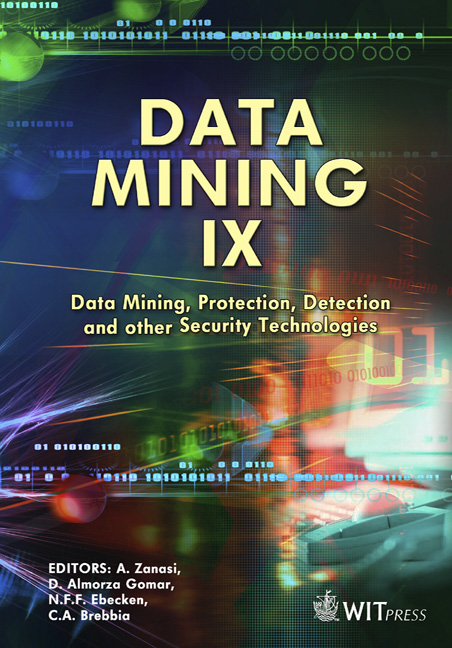An Intelligent Decision Support System For Bridge Safety Assessment Based On Data Mining Models
Price
Free (open access)
Volume
40
Pages
9
Page Range
225 - 233
Published
2008
Size
869 kb
Paper DOI
10.2495/DATA080221
Copyright
WIT Press
Author(s)
M. F. Santos, H. Quintela, P. Cortez & J. O. Almeida
Abstract
Bridges are one of the primary infrastructures in our society. During the life cycle of a bridge structure, the service conditions should be evaluated on a regular basis in order to assure the necessary levels of strength and durability. Taking into account (i) the social-economic importance of bridges’ use, (ii) the necessary safety assurance and (iii) the high costs of any physical intervention, there is a need for continuous online bridge monitoring, for investment and use optimization. Recently, smart structures, which combine remote sensors (which send a stream of time series data) with intelligent information systems for real-time decision support through embedded Data Mining (DM) models, have been proposed to handle this task. Indeed, the application of DM techniques to analyse civil engineering data has gained an increasing interest in recent years, due to intrinsic characteristics such as the ability to deal with nonlinear relationships. In this study, Artificial Neural Networks have been used to predict the following ratios: global efficiency, structural adequacy and safety, serviceability, essentiality for public use, and special reductions, using a ratio-based framework, and data collected during inspections of bridges in the north of Portugal. In particular, the global efficiency ratio is very useful to identify intervention priorities and to schedule the repair, strengthening and rehabilitation needs. The obtained results are encouraging and the most accurate model for global efficiency presents a low error (Root Mean Squared Error of 0.149). This approach opens room for the development of intelligent decision support systems for Bridge Management Systems. These systems are being recognized as a good way to systematize all the management process and to minimize the ratio cost/benefit during the bridge lifetime. Keywords: Data Mining, knowledge discovery from databases, intelligent information systems, intelligent decision support systems, artificial neural networks, civil engineering structures.
Keywords
Data Mining, knowledge discovery from databases, intelligent information systems, intelligent decision support systems, artificial neural networks, civil engineering structures.





